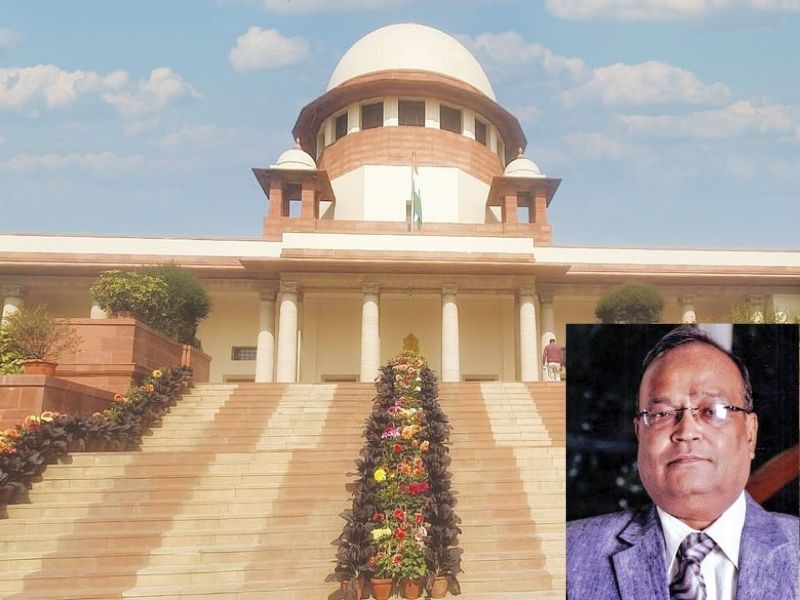
Upholding two sets of appeals filed by the Indian School, Jodhpur and Association of Private Unaided Schools of Rajasthan against the state government, a two judges bench comprising A.N. Khanwilkar and Dinesh Maheshwari JJ, read down, i.e modified, ss. 4, 6, and 10 of the Rajasthan Schools (Fees Regulation) Act, 2016 (FRA).
The first appeal filed by the petitioners challenged the constitutional validity of several sections of the Act. In the second set of appeals they challenged an order of the state government — upheld by the high court — directing private schools to collect only 70 percent of tuition fees — and no other fees — from parents for the academic year 2020-21. The state government had successfully con[1]tended in the high court that since all schools had been under lockdown during the academic year and were teaching online, their managements had not provided co-curricular or transport and other services to students, and therefore parents are not obliged to pay for them. Moreover the syllabuses of affiliated schools had been truncated by CBSE and the state exam boards and online education was restricted to three-four hours per day. Therefore, parents should pay only 70 percent of the contracted tuition fees of their wards studying in CBSE affiliated schools and 60 percent for children in state board affiliated schools.
This fees reduction order was challenged on the ground that it was issued without any authority of law and was violative of the fundamental right of the petitioners conferred by Article 19 (1) (g) of the Constitution as affirmed by an 11-judges bench of the apex court in the landmark T.M.A. Pai Foundation vs. Union of India (2002).
In its detailed judgement the Supreme Court bench held that the right to determine the fees payable by students was vested in every school’s “management alone” by the Supreme Court’s judgement in the Delhi Education News T.M.A. Pai Case. The judges ruled that government can regulate the fee determined by managements of private education institutions only in cases of profiteering and levy of capitation fees.
They noted that the state’s FRA prescribed an elaborate process in which the fees of schools were determined by SLFCs (school level fees committees) — drawn from Parent Teacher Associations made mandatory by FRA 2016 — with the right of either party to appeal to a divisional appellate authority and a higher revision authority. Thus the fees of every private school in the state have been agreed to by parents. Moreover under the rules of the Act the school fee fixed by the SLFC was binding for three years on both the parties, i.e. management and parents. This constituted a binding contract with which the State/government cannot interfere.
The court also noted that institutional managements determine school fees on the basis of investment made in over a dozen parameters, including infrastructure and co-curricular and sports education facilities provided, and after factoring in a reasonable surplus for re-investment and expansion of education — expressly sanctioned by the T.M.A Pai judgement. The learned judges observed that the state government had the option of paying the remainder 30 percent fees or directly provide relief to financially distressed parents. In any event it has no right to vary the terms of the fees contract between schools and parents. However with the appellants representing 36,000 private schools of Rajasthan having volunteered to reduce fees payable for 2020-21 by 25 percent, the court ruled that a 15 percent reduction of 2019-20 fees would serve the interests of justice and relief to the parents community of Rajasthan. Although the two-judge bench of the Supreme Court stressed that the ambit of its verdict is restricted to the state of Rajasthan, private school promoters and managements countrywide have welcomed this judgement which affirms the fundamental right of private schools to determine the fees of their institutions and restricts the right of the State/government to interfere with their fee structures only in instances of blatant profiteering and commercialisation.
“Although the apex court verdict is only applicable to Rajasthan, this elaborate and well-reasoned judgement lays down important principles of law which are applicable countrywide. It unambiguously affirms the right of school managements to determine the total fees payable by parents and upholds the sanctity of contracts between parents and schools. Moreover the burden of proof to prove that schools are indulging in profiteering and commercialisation has shifted from schools to government. We hope that reckless interference in the matter of fees fixation of private schools will now end,” says Damodar Prasad Goyal, president of Society for Unaided Private Schools of Rajasthan.
Although Goyal is too polite to say so, this landmark judgement is a slap in the collective face of the Central and state governments whose officials believe that they have an unfettered right to interfere with contracts voluntarily negotiated between citizens.
Dilip Thakore (Bengaluru)
Also read: 50 Leaders who can revive Indian education – Damodar Goyal